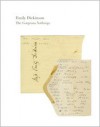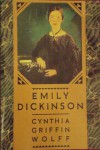Currently reading
Saints in Art
The Gorgeous Nothings: Emily Dickinson's Envelope Poems
Selected Poems
Emily Dickinson
Lies My Teacher Told Me : Everything Your American History Textbook Got Wrong
Gone with the Wind
Light a Single Candle
 I swear to the Flying Spaghetti Monster, I'm catching up on my reviews this month if it kills me.
I swear to the Flying Spaghetti Monster, I'm catching up on my reviews this month if it kills me.(Okay, no. I love Goodreads and I'm all about meeting my book challenge, but I think death is a little drastic.)
I hereby aver that I'm going to try to catch up on my reviews, as long as the tasks I skip in order to do so are nonessential, like housecleaning and fretting.
(Much better.)
Okay: I reread this old childhood favorite a couple of months ago as a brain-break. It stands the test of time well – it was published in 1962. Which isn't all that long ago, but it's long enough that there are the occasional little awkward word choices. ("She supposed her nose must have been sniffing these odors for her all her life, otherwise she wouldn't recognize them so surely and easily, but until these past few days, she'd never paid much attention to them. It was queer." It actually wasn't at all. It was just kind of odd. These things happen.)
And of course there are technology quirks. This is way before books on tape, so when fourteen-year-old Cathy loses her vision, she has to get special equipment in order to be able to read. She learns Braille; but as everyone who's ever tried to read for pleasure without benefit of vision knows, recorded books are a lifesaver – much faster than bump-reading. So Cathy gets a "talking book machine" and the special records to go with it.
I remember all this equipment from a couple of decades ago, when I lived and worked in a home for severely disabled children. I was the only program aide there who liked to read, so I was the one who figured out that those records only worked on the talking book machine, which was basically a record player with a weird spinning speed. (I figured that out by trying those discs on my own little stereo. Amusing, but not exactly reading. But I digress.)
So, yes, this is a bit of a period piece – and yes, I feel weird saying that about a book published in the decade in which I was born. But the basic issues grappled with here are still of vital interest: namely, the tendency for the currently-able-bodied to feel deeply uncomfortable in the presence of the disabled, and for that discomfort to express itself in all sorts of offensive ways. Cathy's best friend Pete drops out of Cathy's life when she comes home sightless from what was supposed to be vision-saving surgery. A neighbor gushes over what she considers Cathy's newfound superpowers:
"Isn't Nature marvelous? Lose your sight, and, immediately, Nature sharpens the rest of your senses to where they're practically superhuman to compensate for it. It's a miracle that just seems to happen overnight!"
This same neighbor is equally adorable while speaking to Cathy's mother when she thinks Cathy is out of earshot, after Cathy and her younger brother have announced their intention to try riding their bikes together on their quiet street:
"Susan Wheeler, I don't see how you dare! If I had a child like that, I'd put her in an institution where she would be with her own kind, and I'd know she was safe and in trained hands. I wouldn't have the responsibility of keeping her at home."
Then there's Joan, the girl who offers "friendship" and assistance with Cathy's school-reading load, when what she really wants is the virtuous credit of being such a wonderful person – helping out that poor blind girl!
Cathy has enough to do coming to terms with what it means to be blind in a sighted world, especially when that means putting aside her cherished dreams of becoming an artist. She learns that it's just as much work to learn how not to go nuts from the condescension and general stupidity aimed her way by much of the sighted world.
Light a Single Candle is one of those YA books that's a terrific read for all ages. It feels like a modern classic, and I suppose it'll be considered a just-plain classic soon enough. Unlike many classics, this one's a lot of fun to read. If you haven't had the pleasure, treat yourself.








